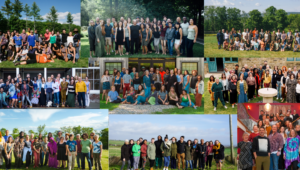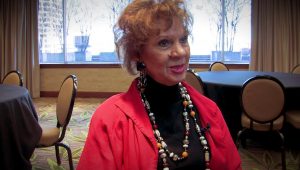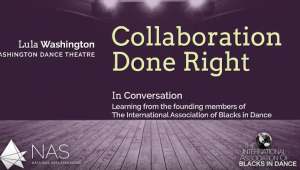This week we will be featuring conversations with leaders working in communities. Abdul Karim Hakib is the Executive Director of Global Arts and Development Centre (GADEC), an art and development NGO based in Accra, Ghana. He is a Theatre for Development practitioner, writer and performer with a particular interest in popular theatre, indigenous performance techniques, performance studies and blending different genres of the arts. He is also a Creative Community Fellow. The following are his answers to our questions posed on creative placemaking.
How do you define “community?”
Community to me could be viewed from three different perspectives. The first has to do with people who share the same aspirations and ideology. The other perspective has to do with residence. Community can be understood to mean a place or a neighborhood of people with different people and different aspirations but have a common goal that brings them together and the last perspective could be viewed from a single personality who embodies the two perspectives mentioned above. He or she is referred to as the community because she or he embodies and signify the custom and aspiration of a given people.
How do you see the role of cultural entrepreneurs like you in the community?
I see the role of cultural entrepreneurs as agents of change and development. It is my view that whatever the aim of the cultural entrepreneur it behooves on him to ensure that he or she is able to inspire development and positive change in the community he operates within.
Why do you think people are talking about creative placemaking so much now?
I think people are talking about creative placemaking because it helps change both the physical and social character of a community. It functions as a rejuvenator and changes the circumstance of the people and structures that have been abandoned. It helps create income for people and help them see things from a bright perspective because in the end it improves their lives economically too.
Talk about the work you’re doing in your community: What was the catalyst for this work? What started you on this journey?
The first step was coming into contact with Eve Ensler and her belief in changing the circumstance of women. I directed the vagina monologues and my team suggested that that we look at the issue further. I mean beyond the stage, so we decided to do our theatre for development to empower women to be able to deal with issues of gender based violence. Having entered into the community, we realized that there more to the needs of the community than just the issue of gender based violence but we were convinced that is the first step towards changing the community. This is the motivation and catalyst for my project and so now the basis of anything I do is to first see how I can help change the condition of the people and community I work with.
What is the driving force? What continues to motivate the work?
The fact that people look up to you and see that for the first time they can trust you because the kind of development you are bringing is not the top-down one but rather the bottom-up which also takes the culture and indigenous mode of communication of the people into consideration. Furthermore, being able to put a smile on the face of people and also helping change the communities from being dependent to being independent in many ways is what give me and my team the urge to do what we are doing.
Who is it for? Who benefits from this work?
All the people involve benefit. By this I mean the people of the communities benefit from what we bring as the new perspective and they also teach us their culture and their mode of doing things. In the end we combine the two approaches to ensure the needed change is effected so as to being about the needed development in the community. So the project is for the community and the benefit is for all involved.
What is the role of cultural entrepreneurs like you in the cultural sector?
Our role I believe is to provide new perspective and also help preserve and change the sector. We are there to shape the thought process of policy makers and opinion leaders so that they see the cultural sector and an evolving and dynamic arena that has the potential of changing the destiny of a community and by extension the nation or a given country.
When you hear the terms “cultural sector” or “arts and culture field” do you feel that includes you? Why or why not?
I have no doubt I am part of the people being referred to. The reason being that our work and what I stand for fall directly within the ambit of what is referred to as cultural sector or arts and culture field. We deal with the custom and social cohesion of the people and communities we work with and also we transcend the traditional aspect of the culture to the contemporary categorization of what the field means and stand for.
Finally, fill in the blank: Creative/cultural work makes communities _____.
Come alive and preserve the legacy of the people and the nation.


